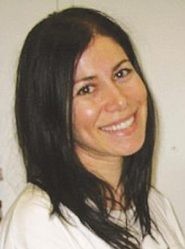Feeling pain as the blood of another is shed
We experience different levels of surprise and shock. Regardless of how intellectually internalized something is, once it takes place, it is a different story.
The radical Islamist ideology that catalyzes killings is, sadly, a reality we are aware of. Yet each time it happens, we feel the shock anew. Each time, we think that somehow now it will be stopped, that this time will be the wake up call and thus the last time we must cope with such terror.
There deep shock at the latest string of terrorist attacks these past two weeks in France and Germany, including the murder of a priest in Normandy. While the thought of going after clergy seems to have jarred many people, I should remind them that rabbis — clergy — were murdered in cold blood just two years ago while worshiping in a synagogue, a house of prayer. That terror, which happened in Jerusalem, was largely unreported, and when it was, it was reported inaccurately by CNN.
A couple of weeks ago, a Nigerian female priest, a mother of seven, was bludgeoned to death. On Tuesday, we woke up to the news — a barely reported story — of an Al Shabaab suicide bombing that killed at least 12 people in Somalia’s capital. The blood of non-Muslims, of Christians and Jews, has been spilled for a long time now, triggered by an extremist radical ideology.
It seems that the West divides between Coptic Christians, Yazidis, and Jews, as well as the location of terror — Africa and the Middle East versus the West. When the unthinkable happens to us in the West, when terrorism reaches the shores of the West, the story is reported in full. When terror strikes non-Western countries or continents, it is internalized as a different matter altogether, with reasons and justifications attributed to it or, all too often, it’s met with plain indifference.
The dissonance is hard to comprehend.
In Western society, acknowledgement of reality seems to be so deeply suppressed that it has yielded to a false sense of immunity, a sense that freedom has already been won and is permanent, without threats from forces bent on destroying it.

 44.0°,
Mostly Cloudy
44.0°,
Mostly Cloudy 




